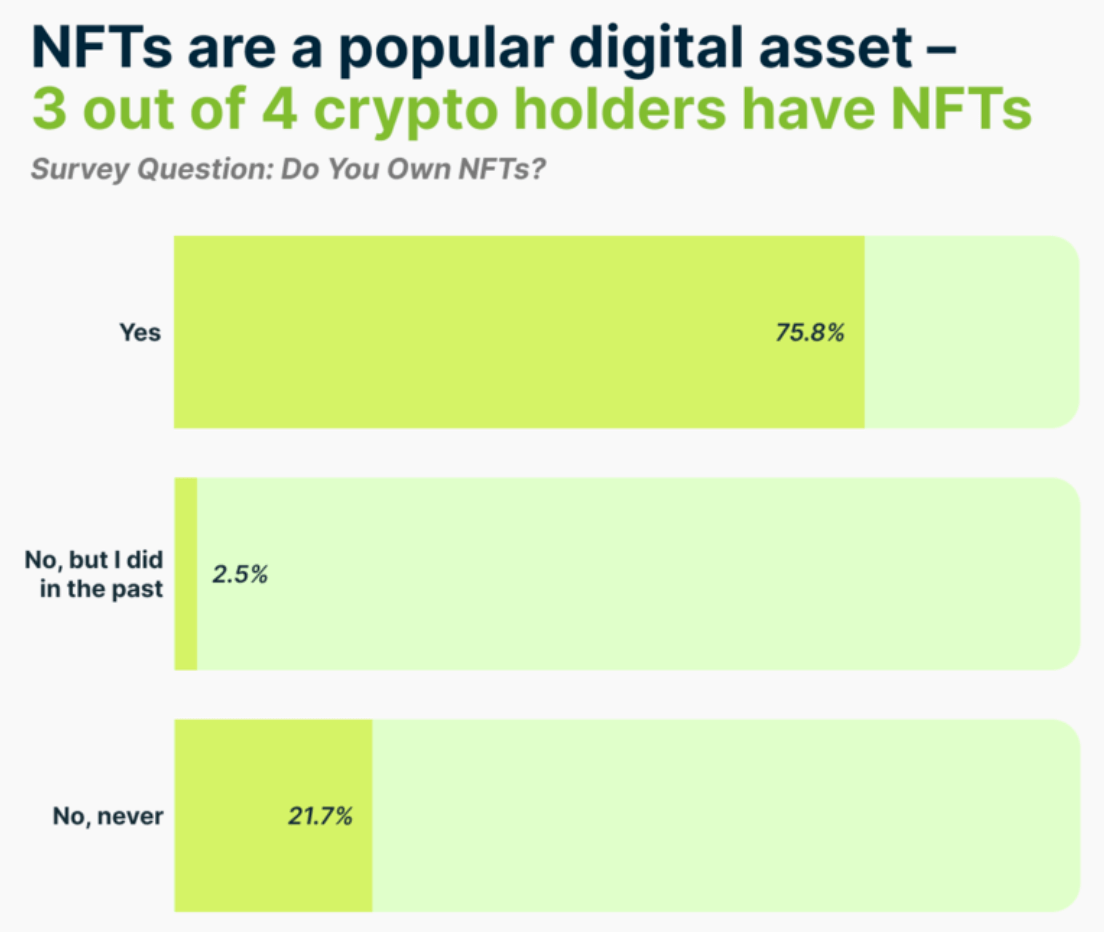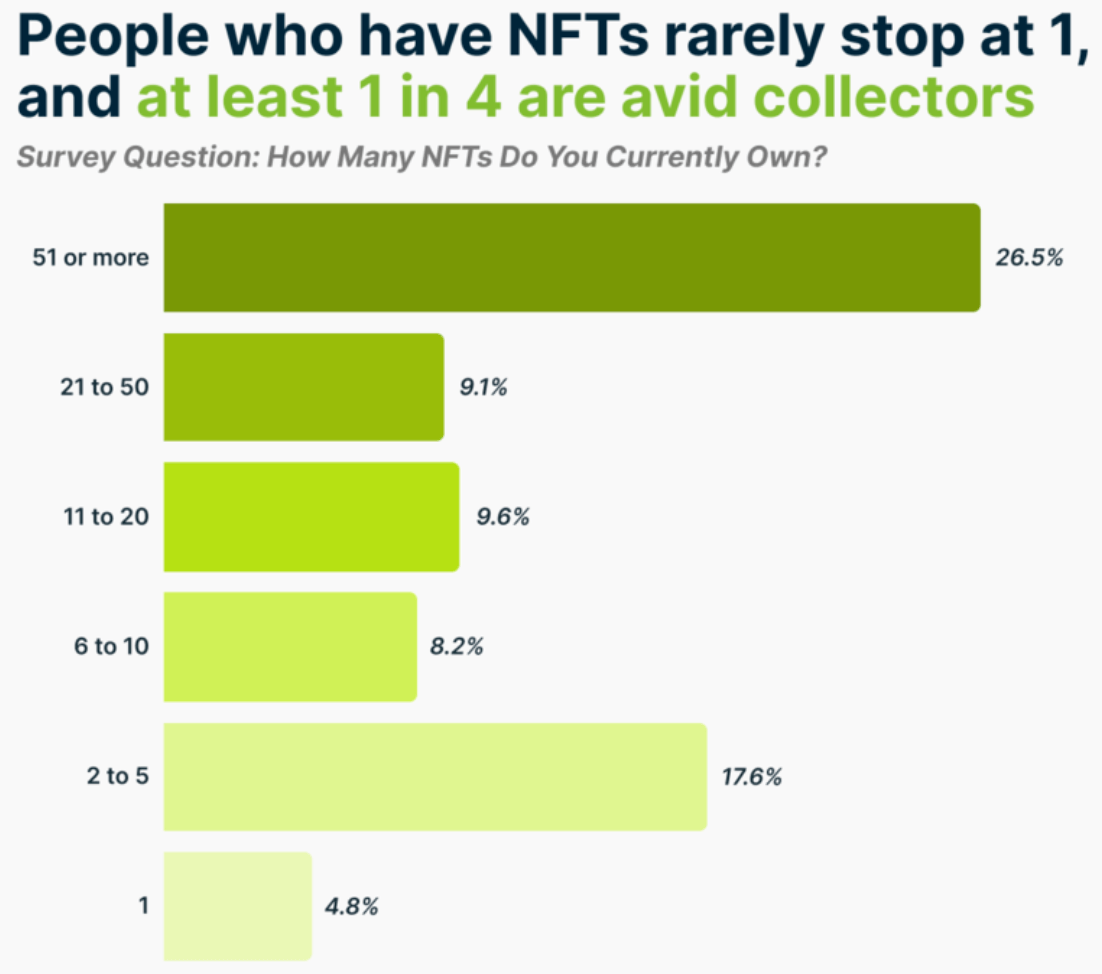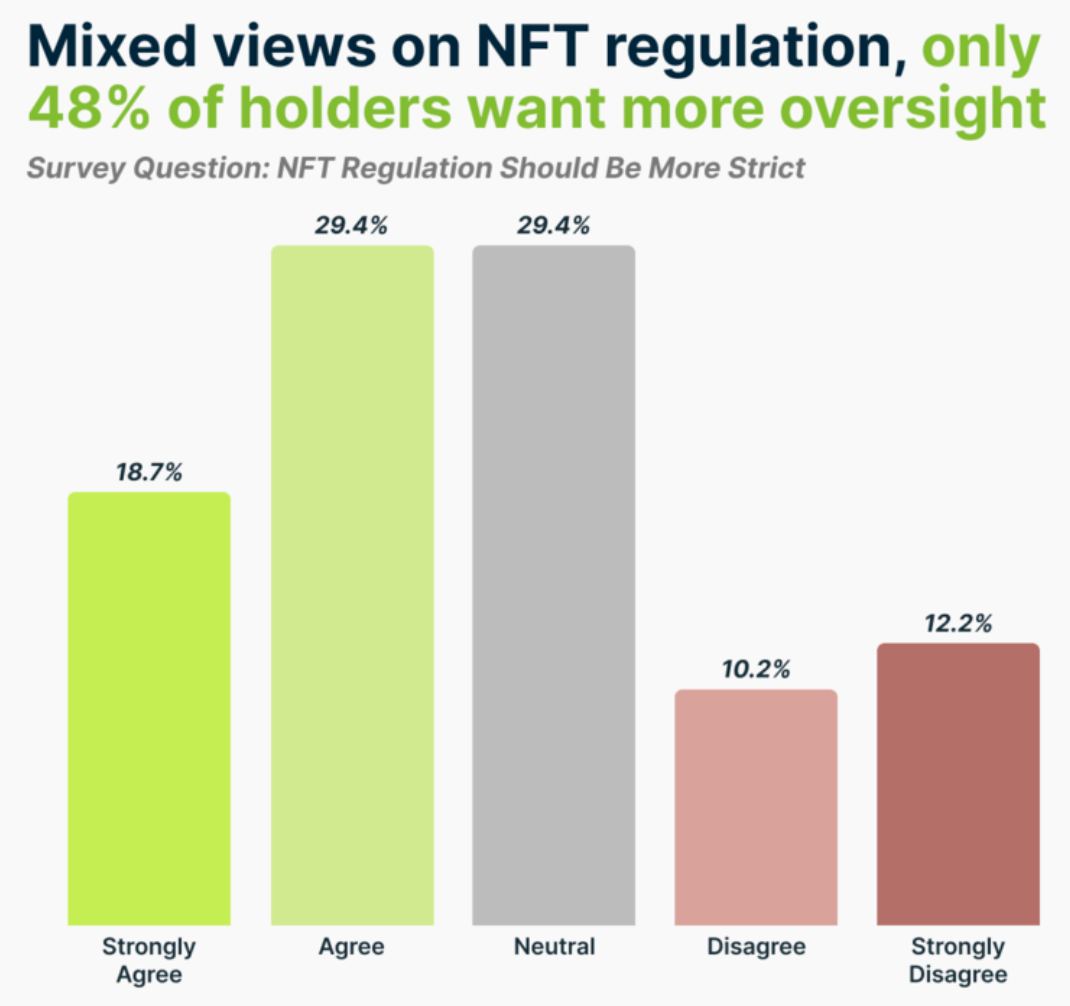At least 25% of crypto holders are avid NFT collectors who own more than 50 NFTs, while only 4.8% said they owned only one NFT.

Three out of four people said they owned non-fungible tokens (NFTs), a recent survey by Coin Gecko revealed.
As opposed to the 75.8% who said they owned NFTs, 21.7% didn’t have and never owned NFTs before, according to the CoinGecko survey.

NFT holders percentage (Source: CoinGecko)
The study included 438 respondents and was held between Dec. 2022 and Jan. 2023. Only a tiny percentage of the participants (2.5%) said they had NFTs in the past, but they sold them all.
Unfortunately, the report doesn’t include the reasoning behind the investors’ decisions. Thus, it’s unknown if the 21.7% who never held NFTs are genuinely against the concept of NFTs or couldn’t get the chance to invest in a project they resonated with.
NFT portfolios
Even though it doesn’t take an interest in the reasoning, the survey does explore the size of the investors’ NFT portfolios.
According to the numbers, 26.5% of the investors who said they held NFTs are keen collectors who own more than 50 NFTs. The report notes that this group will likely include investors who are most enthusiastic about NFTs or traders who flip NFTs.

NFT Portfolios (Source: CoinGecko)
The second largest percentage is reserved by the group that said they owned between two and five NFTs. Investors who owned between 11 to 20 NFTs followed as the third largest group, with 9.6%.
The smallest crowd, with 4.8%, said they owned only one NFT. The report states that people who stopped participating in NFT trading were likely to hold between two to five NFTs, which suggested that investors rarely stopped participating in NFT trading after their first one.
48% is calling for regulations
Another CoinGecko survey took a deep dive into investor sentiments about the risks of NFts and regulatory rules concerning NFTs.
The second report revealed that only 48% of the participants wanted more regulatory oversight in the NFT sphere. Only 18.7% of the whole group were definitely confident they wanted more regulatory oversight.

Views on NFT regulation (Source: CoinGecko)
The percentage of participants who agreed that the NFT space needed more regulations was calculated as the same as those who didn’t have a strong opinion, which was nearly 30%. In the meantime, 22.4% of the participants said they didn’t think the NFT space needed more regulatory oversight, while 12.2% felt very strongly about it.
It is worth mentioning that even though the crowd that asked for more regulatory oversight consisted of a more significant percentage, the ones who felt strongly about it were the minority. On the other hand, participants who were firmly against more regulatory oversight within the NFT space accounted for the majority of the group who agreed.






